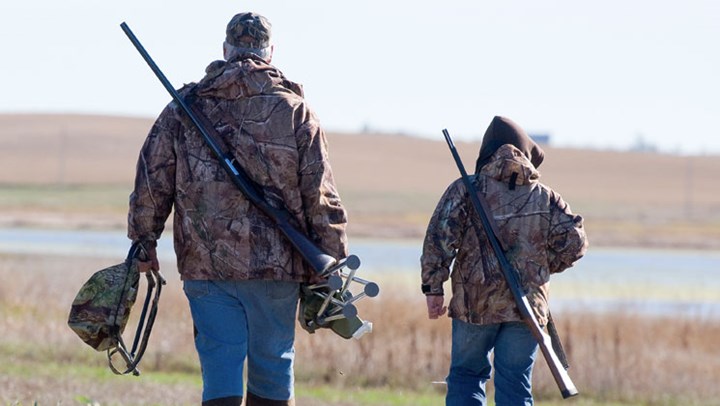
by NRA-HLF Staff - Thursday, February 26, 2015

The much-anticipated Bipartisan Sportsmen's Act of 2015, introduced in the U.S. Senate by Senator Lisa Murkowski (R-AK) on Feb. 5, is a compilation of multiple legislative efforts designed to increase opportunities for hunters, shooters and anglers by reducing the regulations that prevent the enjoyment of our outdoor heritage and enhancing our role as America's preeminent supporters of wildlife conservation. On behalf of its five million members, the National Rifle Association’s Institute for Legislative Action (NRA-ILA) announced its support. The NRA has worked in conjunction with Safari Club International, the National Shooting Sports Foundation, the Boone and Crockett Club, and the Congressional Sportsmen’s Foundation from the very first day of the 114th Congress to get the landmark legislation introduced. Though passed by the House, the compendium of sportsmen’s provisions had been blocked in the Senate for years. Now, with the election of several new pro-hunting Senators in 2014 and the resulting change in chamber leadership, the bill has its best chance ever to be passed through both chambers of Congress.
“Preserving our Second Amendment freedoms and hunting heritage is the core of the NRA’s mission, and the Bipartisan Sportsmen’s Act of 2015 advances those efforts,” said NRA-ILA Executive Director Chris Cox. “I want to thank Senator Murkowski for her leadership on this issue. As a result of her hard work and determination, this important legislation is one step closer to becoming law.”
The bill includes 14 provisions, several similar to those within the Bipartisan Sportsmen's Act of 2014 from the 113th Congress. As reported by NRA-ILA, key provisions of the Bipartisan Sportsmen’s Act of 2015 include:
Hunting, Fishing and Recreational Shooting Protection: This key provision makes clear that ammunition, ammunition components and fishing equipment are exempt from regulation by the Environment Protection Agency (EPA) under the Toxic Substances Control Act. This is necessary because anti-hunting extremist groups have filed multiple petitions with the EPA to ban fishing sinkers and the use of lead ammunition for all purposes—not just hunting. Those petitions have been rejected, but the groups use the administrative rejections as an excuse to sue the agency in pursuit of the same restrictions.
Recreational Self Protection: This section gives law-abiding gun owners more access to carry firearms on land managed by the Army Corps of Engineers.
Making Public Lands Public: This section requires that 1.5 percent of the annual Land and Water Conservation Fund goes toward securing access for sportsmen to public lands that are currently landlocked or otherwise significantly restricted.
Target Practice and Marksmanship Training Support Act: This section makes more funds available to state fish and wildlife agencies for the development of shooting ranges.
Bows Transported through National Parks: This provision permits bows to be transported across national park lands. Currently only firearms can be legally transported, which is a problem for bowhunters who wanting to hunt on Forest Service or Bureau of Land Management lands but must cross National Park Service lands to do so.
E-mail your comments/questions about this site to:
[email protected]
